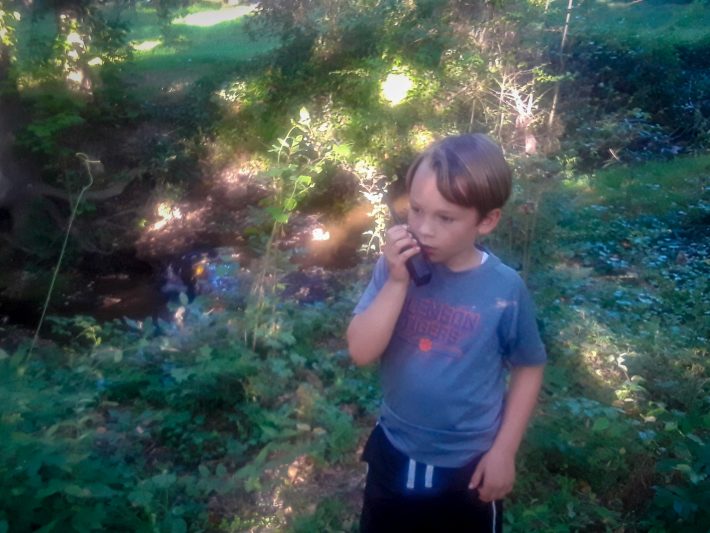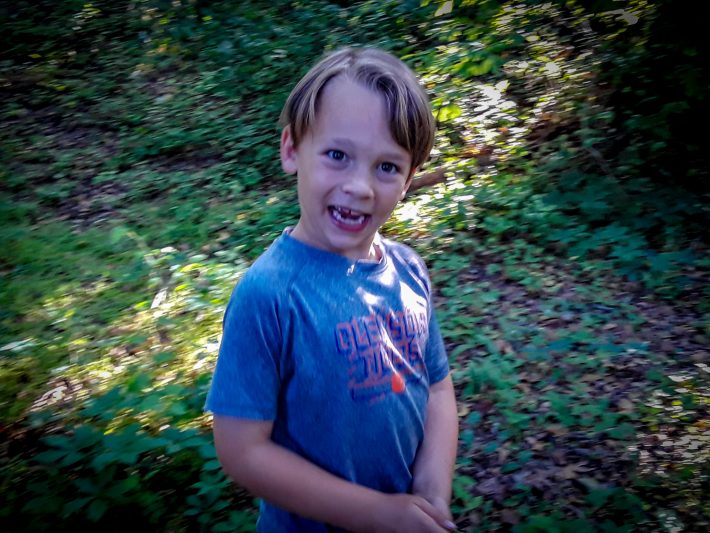The sign of a good book is that when you reread it, you notice something new in it — no matter how many times you reread it. My favorite book of all time passes that test easily: I’ve read Absalom, Absalom! at least six times, maybe more, and every time, I catch something new. And with language like this, who cares if you see something new:
From a little after two oclock until almost sundown of the long still hot weary dead September afternoon they sat in what Miss Coldfield still called the office because her father had called it that-a dim hot airless room with the blinds all closed and fastened for forty-three summers because when she was a girl someone had believed that light and moving air carried heat and that dark was always cooler, and which (as the sun shone fuller and fuller on that side of the house) became latticed with yellow slashes full of dust motes which Quentin thought of as being flecks of the dead old dried paint itself blown inward from the scaling blinds as wind might have blown them. There was a wistaria vine blooming for the second time that summer on a wooden trellis before one window, into which sparrows came now and then in random gusts, making a dry vivid dusty sound before going away: and opposite Quentin , Miss Coldfield in the eternal black which she had worn for forty- three years now, whether for sister, father, or nothusband none knew, sitting so bolt upright in the straight hard chair that was so tall for her that her legs hung straight and rigid as if she had iron shinbones and ankles, clear of the floor with that air of impotent and static rage like children’s feet, and talking in that grim haggard amazed voice until at last listening would renege and hearing-sense self-confound and the long-dead object of her impotent yet indomitable frustration would appear, as though by outraged recapitulation evoked, quiet inattentive and harmless, out of the biding and dreamy and victorious dust. Her voice would not cease, it would just vanish. There would be the dim coffin-smelling gloom sweet and oversweet with the twice-bloomed wistaria against the outer wall by the savage quiet September sun impacted distilled and hyperdistilled, into which came now and then the loud cloudy flutter of the sparrows like a flat limber stick whipped by an idle boy, and the rank smell of female old flesh long embattled in virginity while the wan haggard face watched him above the faint triangle of lace at wrists and throat from the too tall chair in which she resembled a crucified child; and the voice not ceasing but vanishing into and then out of the long intervals like a stream, a trickle running from patch to patch of dried sand, and the ghost mused with shadowy docility as if it were the voice which he haunted where a more fortunate one would have had a house.
What an opening to a novel!
This year I’m teaching Lord of the Flies for the first time in probably five years, and so as might be expected, I’m rereading it. Goodness, that is a great book with layer upon layer upon layer.
I was reading it today when I noticed anew the change: the boys at first change “Kill the pig! Cut it throat! Spill its blood!” but then change it to “Kill the beast! Cut his throat! Spill his blood.” That got me thinking about the nature of the beast itself.

At first, it’s just the littleuns’ fears, but with the landing of the dead pilot still attached to his parachute, the beast becomes something they can see. The beast is unknown. There is a logical explanation, a perfectly natural explanation, but the boys turn immediately to the supernatural.
This first happens when the twins are reporting about their encounter with the beast. In reality, all they do is see the decaying body of the pilot from a distance. When the wind pulls on the parachute, the body pulls up, and the boys panic and run. They make it back to the other boys and explain:
“That was awful. It kind of sat up—”
“The fire was bright—”
“We’d just made it up—”
“—more sticks on—”
“There were eyes—”
“Teeth—”
“Claws—”
“We ran as fast as we could—”
“Bashed into things—”
“The beast followed us—”
“I saw it slinking behind the trees—”
“Nearly touched me—”
At this point, even the bigger boys become convinced. Without realizing it, they create a cult of worship around it. They make a sacrifice for the beast and create a ritualistic dance and chant.

Later, Jack uses the beast to maintain control.
“—and then, the beast might try to come in. You remember how he crawled—”
The semicircle shuddered and muttered in agreement.
“He came—disguised. He may come again even though we gave him the head of our kill to eat. So watch; and be careful.”
Stanley lifted his forearm off the rock and held up an interrogative finger.
“Well?”
“But didn’t we, didn’t we—?”
He squirmed and looked down.
“No!”
In the silence that followed, each savage flinched away from his individual memory.
“No! How could we—kill—it?”
“If I ever suggest I’m not teaching this book again,” I told a fellow English teacher this morning, “slap me.”